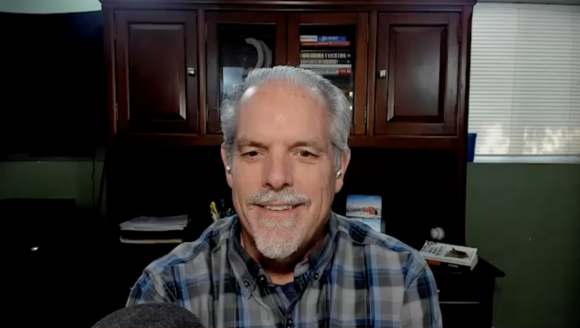Have you considered whether your business is salable? My guest on today’s podcast says only a small fraction of companies have built an organization and leadership structure that makes them attractive to buyers.
Damon Pistulka is founder of Exit Your Way, a firm that helps businesses sell their companies. What’s unique about Exit Your Way is that before it tries to sell a business, it helps the business’s owner increase their company’s value, often working with clients for three to five years. Then the company can net a much higher sale price and have a higher probability of actually completing a sale.
Trust me, that can often be a difficult thing to pull off.
Damon loves to work with manufacturing clients. He’s a mechanical engineer who grew manufacturing companies internally for decades
View the podcast our YouTube Channel.
Listen on your favorite podcast app using pod.link, or:
View the podcast our YouTube Channel.
Facebook: https://www.facebook.com/swarfcast
Instagram: https://www.instagram.com/swarfcast/
LinkedIn: https://www.linkedin.com/company/todays-machining-world
Twitter: https://twitter.com/tmwswarfblog
*************
Link to Graff-Pinkert’s Acquisitions and Sales promotion!
*************
Interview Highlights
Noah: Give us a brief overview of your company, Exit Your Way.
Damon: We help business owners grow their company’s value and prepare it for an eventual sale. My business partner and I have experience in mergers and acquisitions. We realized many small business owners struggle to sell because they haven’t built an organization and leadership structure that makes the business attractive to buyers.
Noah: How did you get into this work?
Damon: It was serendipitous how I got into this field. I studied mechanical engineering in college but didn’t have a clear career direction. I enjoyed an internship at a manufacturing plant, working with CNC machines and building prototype parts. That hands-on work and problem solving was so engaging. I was later recruited by an injection molding company that was expanding rapidly. They gave me tremendous opportunities to spearhead new initiatives as a young engineer. I went on to lead manufacturing plants, learning so much about operational excellence along the way. That eventually led me into private equity and investor-owned companies, where I specialized in business turnarounds. The expertise I built positioned me perfectly for the work I now do in M&A and exit planning.
Noah: So you love the iron. You love the technical stuff, but you also like just the business aspects of it all. Which speaks to you more?
Damon: The business speaks to me more, but the connection between the iron and the business is where I really geek out and have a lot of fun.
Noah: Your company focuses quite a bit on manufacturing clients. What is it about that industry that you find so compelling?
Damon: I get most excited about manufacturers that have an e-commerce component. You bring together data, systems, and physical production to create tremendous complexity. Optimizing all those variables is so engaging and challenging in the best ways. Whether B2B or B2C, I love it.
Noah: So let’s get into the exit planning process. What’s typically the first step you take with a new client?
Damon: We have to start by honestly evaluating what their business is worth. Getting clear on the market value sets proper expectations around what they’ll net from a sale. It’s also critical they understand what funding level they need for their next chapter, whether retirement or a new venture. We work closely with their financial advisor to model different scenarios and ensure their business outcome aligns to their personal financial plan.
Noah: Makes total sense, though I’m sure many business owners struggle to separate emotions from the valuation process.
Damon: Without question. Ego gets in the way so often. They believe their business is worth far more because they’ve invested blood, sweat and tears into building it. But buyers assess value very differently, based on cash flows, profitability, industry benchmarks, etc. I always say – how often do you see someone pay double the value for a piece of equipment? The same applies to selling a business.
Noah: Well said. If the business valuation is step one, what typically follows that in your working relationship?
Damon: The bulk of our work focuses on building an organization and leadership team that can thrive without the owner. Bringing on talent, clearly defining roles, implementing structures and processes that facilitate scaling. Empowering people to take on more responsibility. Doing that properly increases business value tremendously. It also makes the company far more attractive to buyers when the time comes to exit.
Noah: That makes so much sense. And I imagine it leads to growth and innovation as well.
Damon: Without question! We’re not just cutting costs to boost profits. We’re positioning the company for rapid expansion by assembling a high-performing team. The business wins in so many ways through that process.
Noah: As we wrap up, what final advice would you offer business owners considering an exit down the road?
Damon: My biggest piece of advice – start the planning process very early, even if your exit is 5+ years away. These transitions take a long time to do properly. But by giving yourself plenty of runway, you can build an organization that delivers maximum value for your own financial security as well as your employees and community. Don’t let time slip away. Be intentional and proactive every step of the way.
Noah: Thank you Damon. Where people can connect with you and follow your work?
Damon: Thank you Noah! You can find me at ExitYourWay.us and my podcasts, Faces of Business, and On Air Manufacturing eCommerce Success Series.
Note: This transcript excerpt is a condensed version of the interview, created with the assistance of AI. Various sentences and paragraphs have been combined or paraphrased to improve readability.
Podcast: Play in new window | Download




